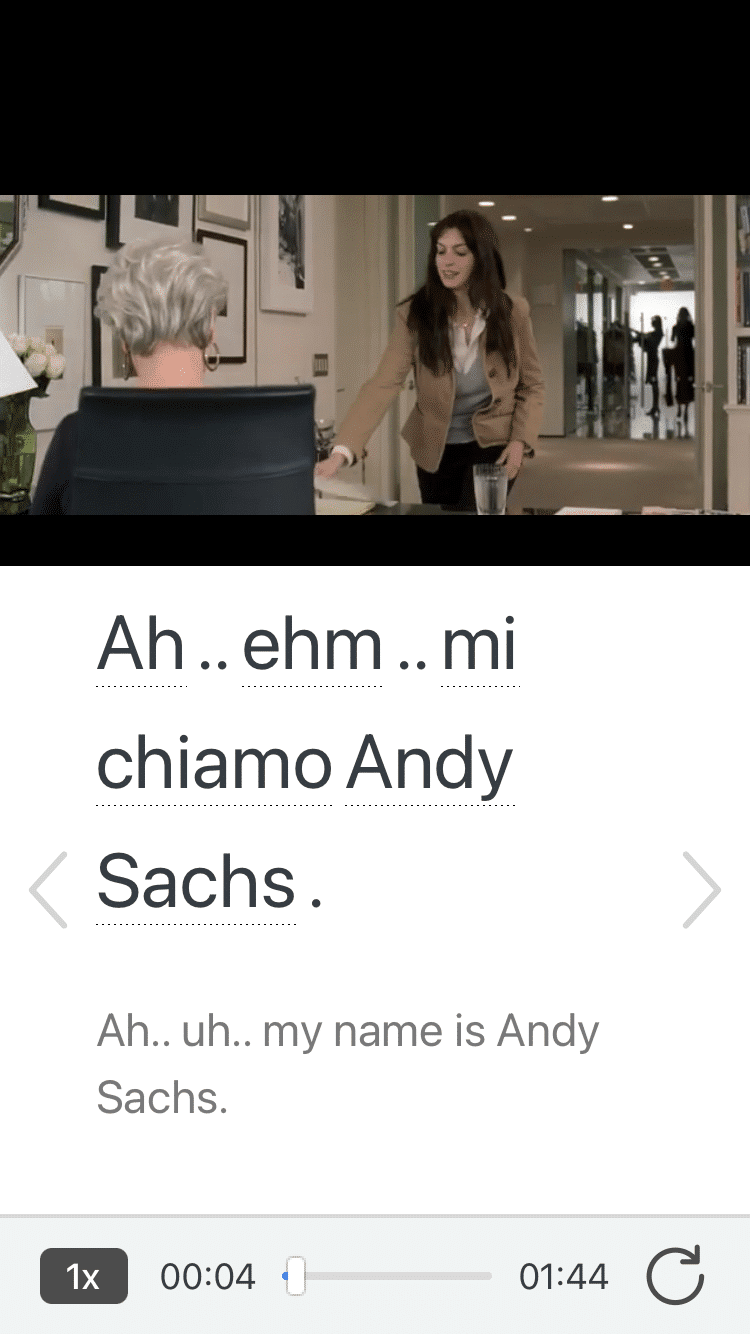
The 49 Best Italian Sayings, Quotes and Proverbs
Italian sayings are as vivid as Italy’s vistas, enlightening as its museums, hearty as its food and lively as its people.
When you’re looking to share some timeless wisdom, you can quote the Italians on subjects like wine, food, family and religion. They’re a staple of communication in this special place.
So whether you’re thinking of traveling to the Boot, forming a friendship with an Italian or embarking on an Italian business opportunity, familiarize yourself with a few Italian sayings, quotes and proverbs that will add depth and flavor to any conversation.
Contents
Download: This blog post is available as a convenient and portable PDF that you can take anywhere. Click here to get a copy. (Download)
Wine
1. Vino rosso fa buon sangue – “Red wine makes good blood”
Italian proverbs cover all areas of existence, and Italy is famous for its fabulous wine. This proverb suggests that red wine is so good that it even makes good blood!
Maybe there’s a kernel of truth to this—the Mediterranean diet is famous for a reason!
2. Non puoi avere sia la botte piena, che la moglie ubriaca – “You can’t have a full wine barrel and a drunk wife”
This is pretty similar to the English saying, “You can’t have your cake and eat it, too.” Maybe I’m biased because I never used to understand this saying, but I think the Italian version is a lot more fun!
This quote happens to feature the adjectives piena (full) and ubriaca (drunk). The more illustrative the proverb, the more abundant the adjectives! Remember the importance of adjective order and conjugations when learning these expressive proverbs.
3. Anni e bicchieri di vino non si contano mai – “You never count years or glasses of wine”
This proverb advises you to live in the moment. Better yet, enjoy it with a glass of wine in hand. Often if an Italian offers a friend a libation, this proverb is quoted. Just don’t count how many glasses.
4. L’acqua fa male e il vino fa cantare – “Water is bad and wine makes you sing”
So drink that wine! This is from an old Italian drinking song called “Bevilo Tutto” (Drink It All). Often friends egg each other on to drink more by singing this proverb.
For a real treat, you can hear Samuel L. Jackson and a group of Italian nuns singing the song in the film “The Hitman’s Bodyguard.”
5. Chi non beve in compagnia o è un ladro o è una spia – “If you don’t drink in company, you’re either a thief or a spy”
This is a slightly more comical phrase commonly used in Italian to say that if someone doesn’t drink with others they most likely have something to hide.
6. Il vino la mattina è piombo, a mezzodì argento, la sera oro – “In the morning, the wine is lead, at midday it is silver and in the evening it is gold”
This is an old saying in Italian about the way you should consume wine. It says that in the morning wine is lead, at midday it’s silver and in the evening it’s gold, meaning that you shouldn’t drink in the morning. It’s best to drink as the day goes on.
7. Buon vino, tavola lunga – “Good wine, long table”
Buon vino, tavola lunga is an older Italian saying that literally means “good wine, long table.” This often means that if something is good, for example, if you offer good things, more people will be around you (and you’ll need a longer table!).
Food
8. Il pane apre tutte le bocche – “Bread opens all mouths”
Italians are big on sharing meals, even with people who might be naturally quiet or tight-lipped. So if you want to learn something from someone, why not invite that person to dine? Along with food, ideas and secrets are often exchanged.
It’s worth noting that this phrase is often taught to Italian students, however, it’s rarely used by native Italian speakers.
9. Come il cacio sui maccheroni – “Like the cheese on macaroni”
Macaroni is good, but adding cheese on top makes it even better. When you say you’re making a thing or situation like cheese on macaroni, it means that you’re making it perfect.
10. O mangi questa minestra o salti quella finestra – “Either eat this soup or jump out the window”
Roughly similar to the English expression “take it or leave it,” this is a favorite proverb of harried Italian moms and grandmas. When confronted with a picky child, a mother might shout, o mangi questa minestra o salti la finestra! And then you know she means business.
11. Pollo, pizza e pani si mangiano con le mani – “Eat chicken, pizza and bread with your hands”
The most visceral pleasures in life aren’t fancy. Knives and forks may be just fine, but when you really want to enjoy a moment, get down to business and use your hands.
12. Se non è zuppa è pan bagnato – “If it’s not soup, it’s wet bread”
This is a phrase used to express that two things are essentially the same, even if they’re spoken about in different ways. It’s much like the English phrases “six of one, half dozen of the other” or “same meat, different gravy.”
But how does that make sense? Notice that the word zuppa is used here instead of minestra as in #10 above. Many modern Italian zuppe have slices of bread or toast in them, unlike minestre. And, before it came to mean a type of soup as we know it, zuppa referred to bread soaked in broth or meat juice.
Makes perfect sense! And it goes to show how long some of these sayings have been around.
13. Troppe salse vivande false – “Too much sauce means false food”
When it comes to both food and life in general, a glamorous façade on the outside can mask badness on the inside. If something seems overly frilly and fancy, it may be a sign that it’s got something to hide.
14. Non tutte le ciambelle riescono col buco – “Not all donuts come out with a hole”
This is used to indicate that things don’t always turn out as planned.
Though the donut is not a typical Italian dessert, Italians have embraced the donut as much as they have embraced Homer Simpson, the donut-loving American TV character.
Young Italians love “The Simpsons.” On the Italian cooking website Giallo Zafferano, you can even find a Simpsons-inspired recipe for the iconic pink-frosted donut with rainbow sprinkles.
The word ciambella is also used in Italian to refer to a larger ring-shaped cake.
15. Chi lavora mangia. Chi non lavora, mangia, beve e dorme – “He who works, eats. He who doesn’t work, eats, drinks and sleeps”
This is the Italian translation of the Neopolitan saying Chi fatica magna, chi nun fatica magna e beve (He who works eats, he who doesn’t work eats and drinks).
In Italy, work is seen as a means to an end, not as an end in itself. This saying is most commonly used to highlight the importance of work-life balance.
It’s worth mentioning that this phrase can also be interpreted in another way. Some people may be astute and clever enough to enjoy life by other means without having to work.
16. Dire pane al pane e vino al vino – “Say bread to bread, wine to wine”
This Italian saying highlights the importance of speaking both directly and clearly, without avoiding the subject. A similar expression in English is “to call a spade a spade.”
17. Rendere pan per focaccia – To give bread for focaccia
In English, a similar expression to this one would be “an eye for an eye,” meaning that if someone has done you wrong, you should do the same to them.
18. Avere il prosciutto sugli occhi – To have ham in one’s own eyes
This saying is commonly used in Italian to say that someone doesn’t see or understand something that is right in front of them. This is like the English saying “to have/bury your head in the sand.”
Animals
19. A ogni uccello il suo nido è bello – “Every bird finds his own nest beautiful”
This is the Italian equivalent of the English saying “there’s no place like home.” Wherever life may take you, no place is quite like home.
20. Il mattino ha l’oro in bocca – “The early bird catches the worm”
In Italian or English, you’ve probably heard this one more than a few times in your life. It tells us to act early in order to get ahead of others, which will ensure success.
21. È facile far paura al toro dalla finestra – “It’s easy to scare a bull from a window”
This proverb makes it plain that anyone can be brave when the danger is at a safe distance.
It applies to business associates who might present a bold front when, in reality, they’re bluffing.
22. Gallina che canta ha fatto l’uovo – “The singing hen laid the egg”
Sometimes, proverbs require a bit of interpretation. That’s the case with this one, which advises one to look for the noisy person if you want to know who’s responsible for an act.
This is often heard in offices or shops when someone doesn’t want to own up to their action.
23. Tanto va la gatta al lardo che ci lascia lo zampino – “The kitty goes so often to the lard she leaves her pawprints there”
You can’t get away with something forever. Eventually, a clue (or a pawprint) will be spotted and you’ll be found out.
This saying is a very Italian version of “getting caught with your hand in the cookie jar.” Italian kitties like lard more than biscotti, I guess!
24. Meno pregiato è il pesce e meglio il brodo riesce – “The less noble the fish, the better the broth”
The most rustic things can be the most pleasurable, too.
This is a common sentiment across Italy, where people all around the country appreciate cucina povera (peasant food). Whether you’re in Northern, Southern, Adriatic or Tyrrhenian Italy, you’ll find that Italians have a great fondness for the simple pleasures in life.
As you can see, culture has a significant influence on language and in particular on sayings. One of the best ways to learn these sayings is to immerse yourself in Italian culture and see how they are used by native speakers.
Colloquial sayings like the ones mentioned in this post often need to be used in the right context to be effective, so watching Italians use them in conversation will help you understand when and how they should be used.
There are many ways you can expose yourself to the Italian language and culture. For example, you could try watching Italian TV shows or movies and identify quotes used by native speakers.
Another great resource is FluentU. This language learning program is helpful for understanding contextual uses of words and phrases.
FluentU takes authentic videos—like music videos, movie trailers, news and inspiring talks—and turns them into personalized language learning lessons.
You can try FluentU for free for 2 weeks. Check out the website or download the iOS app or Android app.
P.S. Click here to take advantage of our current sale! (Expires at the end of this month.)
By immersing yourself in native Italian content, you’ll not only improve your Italian, but you’ll also gain an understanding of Italian culture and colloquial sayings.
25. Il polpo si deve cuocere nella sua stessa acqua – “The octopus must cook in its own water”
This is the standard Italian version of a Neapolitan dialect phrase that has now been adopted across Italy. It refers to a stubborn person who may dismiss all new ideas proposed to him.
You can say: “Give it time. He’ll come around.” Or in Neapolitan Italian, you can say: “Let that octopus cook in its own juices.”
The original Neapolitan form of this proverb is: ’O purpo s’adda cocere cu’ l’acqua soja. Why not try to learn both the Neapolitan and standard Italian versions? You’ll earn serious brownie points from your Neapolitan friends!
People

26. Una casa senza donna è come una lanterna senza lume – “A house without a woman is like a lantern without the light”
My father-in-law explained this to me when he welcomed me into the family.
It means that a woman elevates the character and value of a house. She makes a house a home.
27. Noi non potremmo avere una vita perfetta senza amici – “We can’t have a perfect life without friends”
This is the modern Italian translation of a famous quote by the father of the Italian language, Dante Alighieri.
In its original form, it would have been written as Noi non potemo perfetta vita vere sanza amici. Even in the 13th century, friendship was of central importance in Italian life.

28. Meglio solo che male accompagnato – “Better alone than in bad company”
Italian culture embraces time spent with friends and family. It’s a lifestyle that’s filled with long, leisurely dinners, festive parties and celebrations.
This proverb shows that while many are welcome to join in the fun, bad company need not show up at the door. Tempo da solo (time alone) is superior to time wasted on negative people.
29. A buon intenditor poche parole – “Few words are needed for a good listener”
This particular Italian saying can be used in a variety of situations due to its versatile meaning.
For example, one meaning of this phrase is that if you are clever enough, you don’t need many words to understand. This is similar to the English phrase “a nod is as good as a wink.”
This saying can also be used as a warning. For instance, a mother might say to their child who is going out Domani hai scuola. A buon intenditor, poche parole (Tomorrow you have school. A word to the wise is enough), hinting that they shouldn’t stay out late.
30. A tavola non si invecchia – “At the table, you don’t get old”
Italians never eat alone, so this phrase implies that if you’re at the table, you’re also surrounded by family and friends. Of course, this also includes the grandparents, Nonno and Nonna, enjoying good health and happiness in their old age.
The elderly in Italy are respected members of society. Seniors enjoy active social lives and decades-long friendships. It’s not uncommon to see a group of old men at the bar playing Scopa (a traditional card game) or a group of old ladies gossiping at each other’s windows.
Family
31. Una buona mamma vale cento maestre – “A good mother is worth a hundred teachers”
Think of everything you learn from your mom. The lessons that she teaches you about life are really irreplaceable and can’t be learned from anyone else.
The mamma is the head of the Italian household. A mother is an Italian girl’s best friend and confidant. It’s also not a bad thing for a man to be called a mammone (mamma’s boy). The former prime minister (and comically macho playboy) Silvio Berlusconi proudly describes himself as one.
32. L’affetto verso i genitori è fondamento di ogni virtù – “Loving one’s parents is fundamentally the greatest virtue”
This is a play on the Bible’s Sixth Commandment, “honor thy father and mother.”
Italy is a very Catholic country. The definition of what constitutes a “traditional family” is based on traditional Christian values. Consequently, while Italy does recognize civil unions between gay partners, it does not recognize gay marriage.
Nevertheless, many individuals there believe that all kinds of marriages should be accepted, while still loving and honoring one’s parents.
33. Tra moglie e marito non mettere il dito – “Don’t put a finger between a husband and wife”
This one means that the bond linking spouses is a tight one, so don’t even attempt to come between them.
34. Chi si volta, e chi si gira, sempre a casa va finire – “No matter where you go or turn, you’ll always end up at home”
This is similar to “home is where the heart is” in English, but it also reflects the importance of family closeness in Italian culture.
While the multi-generational Italian household of decades past is in decline, families still try to live in close proximity to one another. Children only move far away from their parents if doing so is absolutely necessary for work or study. When they do, this proverb is a reminder that they will always carry their family with them in their heart.
Weather
35. Dopo la pioggia, arriva il sole – “After the rain comes sunshine”
This is a gentle cue to be patient through life’s tough times. People say that time heals all wounds, and often it’s true! Skies inevitably clear, and things are bound to improve.
36. Una bella giornata non fa estate – “One beautiful day doesn’t make a summer”
This proverb is similar to a quote from Aristotle: “One swallow does not a summer make, nor one fine day; similarly, one day or brief time of happiness does not make a person entirely happy.”
The ancient Greek philosopher postulated that one wonderful incident (a beautiful day or a swallow) doesn’t indicate a trend. One positive occurrence might be nice, but it’ll take more than one to ensure that something (like summer) is here to stay.
Italian wisdom has abbreviated the original, but the meaning remains timeless.
37. In bocca chiusa non entran mosche – “No flies enter a closed mouth”
The literal translation is vivid—every time I hear this one, I quickly close my mouth! This proverb cautions one to refrain from speaking unwisely or without cause.
In other words, if you can’t say something nice or necessary, don’t say anything at all.
38. A chi dai il dito si prende anche il braccio – “Give them a finger and they’ll take an arm”
Both this proverb and its English equivalent, “Give them an inch and they’ll take a mile,” comment on how people can or may take advantage of someone.
Religion
39. Dagli amici mi guardi Dio, che dai nemici mi guardo io – “God guards me from my friends; I guard myself from my enemies”
This is a very old declaration of both faith and self-reliance.
A reminder to beware of both friend and foe, this proverb conveys the certainty that a higher power offers all the necessary protection when dealing with friends.
It’s also a call to protect oneself from any enemies, rather than relying on God or someone else to do it for you.
40. Aiutati che Dio t’aiuta – “Help yourself so that God will help you”
Just like the English version, “God helps those who help themselves,” this means that being proactive is a good thing and can pave the way for added assistance from a higher power.
41. Bacco, tabacco e Venere riducono l’uomo in cenere – “Bacchus, tobacco and Venus reduce a man to ashes”
This is a proverb about vices. Bacchus is the god of wine; Venus is the symbol of women. The gist here is that wine, cigarettes and women can lead to a man’s downfall when he overindulges. Consider yourself warned!
You’ll notice a lot of verb conjugations in each of these quotes—for example, the above conjugation of ridurre (to reduce). Make sure you remember your Italian verb conjugations.
42. La farina del diavolo va tutta in crusca – “The devil’s flour all turns to chaff”
Cheaters never prosper. Something that starts with bad intentions usually ends badly.
Chaff is the dry, scaly covering on wheat and corn. It can’t be turned into more valuable flour and was historically used by farmers as livestock feed. Thus, chaff was considered debris.
In this quote, the devil can’t produce valuable flour due to his malice.
43. Vecchi peccati hanno le ombre lunghe – “Old sins have long shadows”
This is one I first heard from an elderly family friend. One day, he observed two children who were considering raiding a candy dish on the table, so he gave them this proverb to consider.
He explained that what we do today—both good and bad—is remembered tomorrow, too.
That day, the contents of the candy dish went undisturbed.
44. Quando il diavolo ti accarezza, vuole l’anima – “When the devil caresses you, he wants your soul”
This Italian saying is used as a warning. Some people may pretend to flatter you or be your friend because they want something from you.
Life

45. Il tempo passa e non ritorna – “Time passes and does not return”
This Italian adage advises listeners to recognize that time isn’t infinite. So, use whatever time you have wisely.
46. Quando finisce la partita il re ed il pedone finiscono nella stessa scatola – “When the game ends, the king and pawn end up in the same box”
This proverb levels the playing field and makes all people equal by showing that no one is superior to another.
We all end up in the same place no matter how we play the game of life.
47. Ad ogni pentola il suo coperchio – “For each pot its own lid”
This Italian phrase is most commonly used to say that everyone deserves the person they are with.
In different regions of Italy, this saying can also mean that everyone will find their soulmate.
Note the article used in the above quote is il because coperchio (lid) is singular and masculine. As you learn new Italian quotes, be sure to practice your articles. You’ll thank yourself later on!
48. La cucina piccola fa la casa grande – “The small kitchen makes the house big”
The kitchen is the center of Italian domestic life and a way for all families to feel rich in spirit.
This phrase highlights the idea that the kitchen has an important role in strengthening relationships and bringing the family together.
49. Meglio aver poco che niente – “It’s better to have a little than nothing”
Until the mid-20th century, some regions of Italy struggled with poverty. This fostered an attitude of thankfulness, which psychologists say is the basis for a happy life.
In modern, affluent Italy, many people think that it’s also better to have a little bit of a good thing as opposed to many mediocre things. You can see this in the way that Italians will pick out only the best clothes, handbags and artisanal food, even if it means they can only afford to have a little bit.
Italian life revolves around close family ties, excellent food and endless fun—and each of these facets has a colorful collection of proverbs associated with it.
Sometimes, these sage bits of wisdom are open to interpretation, but they all add depth to Italian conversations. They offer a chance for language learners to catch a glimpse of cultural ideas and societal nuances.
When used in day-to-day exchanges, they can make even beginner speakers sound like locals.
Proverbs have universal appeal, so use them often!
Download: This blog post is available as a convenient and portable PDF that you can take anywhere. Click here to get a copy. (Download)
And One More Thing...
If you're as busy as most of us, you don't always have time for lengthy language lessons. The solution? FluentU!
Learn Italian with funny commericals, documentary excerpts and web series, as you can see here:

FluentU helps you get comfortable with everyday Italian by combining all the benefits of complete immersion and native-level conversations with interactive subtitles. Tap on any word to instantly see an image, in-context definition, example sentences and other videos in which the word is used.

Access a complete interactive transcript of every video under the Dialogue tab, and review words and phrases with convenient audio clips under Vocab.

Once you've watched a video, you can use FluentU's quizzes to actively practice all the vocabulary in that video. Swipe left or right to see more examples of the word you’re on.

FluentU will even keep track of all the Italian words you’re learning, and give you extra practice with difficult words. Plus, it'll tell you exactly when it's time for review. Now that's a 100% personalized experience!
The best part? You can try FluentU for free with a trial.
Start using the FluentU website on your computer or tablet or, better yet, download the FluentU app from the iTunes or Google Play store. Click here to take advantage of our current sale! (Expires at the end of this month.)









